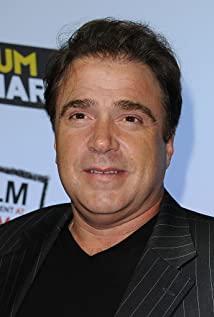obsessed with money, and indulged in fine wine, to some extent, are the same. Alcohol exerts its effects through physiological effects, while money exerts its effects through psychological effects. Therefore, drunken drunken fans are often used to describe a life of luxury and erosion. In terms of imagery, there is no second word more appropriate.
Today there is wine and now drunk, nowadays, wine and money are always tied together. Buying drunk can be paralyzed for a while, if money helps, it can be paralyzed for a lifetime. Therefore, in "The Lime Diary", when the rich man Sanderson tried to lure Camp with money, the temptation was so great.
It is undeniable that when I went to watch "Lime Diary", on the one hand, it was directed at the weird Depp, on the other hand, it was also full of interest in such films depicting bohemian lives. After all, seeing Xiao Lizi in the "Wolf of Wall Street", all kinds of flowers and wine, apart from the start of the cannons, it is inevitable that he will be envious in his heart.
The plot of this film is of course a bit thin, but it is a recount of how a prodigal reporter was in a foreign country, in the temptation of money, wine, and beauties, the so-called adherence to ideals, fear of power, and so on. However, given Mr. Depp's grasp of this kind of image, he did put a profligate "hero" in place. Of course, afterwards, he took this film to embrace the beauty, which is something to follow.
After I was still in the mood, I checked some of the background of the film, and I sighed that the original film prototype has a lot to do with us in the media.
1. Speaking from Gangzuo News,
"All of us are like actors, deceiving ourselves in meaningless wanderings. On the one hand, we are embracing endless ideals, on the other hand, we feel hesitated about the future. Next, continue to live like this."-Hunter Thompson's "Rum Diary"
film is adapted from the work of the same name by the American journalist Hunter Thompson. Speaking of this man, it is quite predictable.
Name: Hunter Stockton Thompson (Hunter Stockton Thompson)
Year of Birth and Death: July 18, 1937-February 20, 2005
Occupation: Reporter, Writer
Hobbies: Smoker, Alcoholic, Addict, Gun Lovers
As a journalist and writer, Thompson once worked for "Rolling Stone" magazine (you can see its unreliable side from the beginning of his writing). When he was alive, he was as famous as Marcuse, Kerouac, Alan Ginsburg and other famous "thorns" in American society. When he was young, he also joined the "Hell Angels" of the motorcycle party, and later wrote the book "Hell Angels" based on this experience, which became famous in one fell swoop and created a new type of news form-Gang Zuo News (Gonzo News) Journalism, also known as "absurd news").
Thompson's unrestrained behavior is not only manifested in his creation of a new news style, but also in his life's words and deeds. Because of his love for guns, he fired three shots in a book given to his friends and declared that this was his signature to his friend. In 2005, he chose the same approach as Hemingway, committing suicide by drinking a bomb, and even more exceptionally, his will requires his body to be sent to the sky with a cannon.
In fact, the so-called "Congo-Left Journalism" is inseparable from Thompson. Some people even say that the most appropriate definition of Congo-Left Journalism is the works written by Thompson himself. Of course, judging from the overall characteristics, Congolese-Left journalism should be regarded as a branch of the new journalism that emerged in the United States in the second half of the 20th century.
The key point in the definition of Gangzuo news is that Gangzuo news reporters must write in the first person and must become the dominant narrative. This is also in line with the claims of new journalism. "In the highly influential book "New Journalism: and Anthologies" (1973), Wolf said that new journalism means that reporters use real people and real things as the basis for reporting. Basically, using some of the techniques of novels, including novel techniques from traditional dialogues to modernist streams of consciousness, to vividly narrate and analyze events. It can be said that new journalism is a combination of news reporting and novel techniques. "
2, new journalism VS traditional journalistic professionalism
If we trace the development of journalism, we will find that as history enters the second half of the 20th century, journalism, which is the guarantee of freedom and democracy, has become increasingly criticized in the United States. Many people believe that the "news objectivity" claimed by American journalists is actually just a fig leaf for the power of the ruler. Especially in the reports of the Vietnam War, the collusion of journalists with political and economic power has made people deeply question the principle of journalistic objectivity. The so-called "objectivity" is only the news editorial department's own identification of objectivity, a kind of objectivity that hides the subjectivity, and this "concealment" itself constitutes a bigger problem.
The editorial department is by no means a harmonious pure land. In "The Nostalgia of Journalism", Xu Zhiyuan compared the editorial department and advertising department of the news media to the church and the country (of course, such a metaphor is not the first of its kind). It seems that the former is the soul of the media, and the latter is just its It's just the foundation of basic survival. However, in actual operation, the behavioral logic of the editorial department is deeply restricted by the economic lifeline of advertising, which is why in the eyes of Karen, Tuchman, Gans, and Schudson, advertising is nothing but the government. Another "license" for controlling the media, but this license is not directly issued by the government in its external form.
Of course, it is undeniable that traditional objective reports still play an important role in promoting society. During the "Watergate Incident" in the 1970s, reporters Bob Woodward and Carl Bernstein of the "Washington Post" publicized journalists' relentless pursuit of objective truth. However, such an opportunity was really great. It is impossible to ask for it, and the delusion to change society through a certain report has become an unspeakable heart disease for many American journalists.
On the one hand, power (whether political or economic) inevitably plays an important role in the production of news, and the news media that was once considered an important tool for monitoring government behavior is no longer reliable; on the other hand, After practicing their work, journalists feel more and more that as a member of society, they should be more actively involved in the incident to play a role. Therefore, under the influence of dual forces, new journalism has been affirmed by journalists in a more positive and subjective posture, and has become a force that supplements the deficiencies of traditional journalism.
In fact, no matter what kind of news person, as long as he is on the front line of interviews, he has to face two different career role choices: whether to be an active advocate or a negative neutral reporter. Based on different choices, the news text is similar to the readable text and writable text described by Roland Barthes to some extent. It just started here.
The same goes for the Gang Zuo news advocated by Thompson. In his view, what journalists face is the paradox of "Heisenberg's law". When journalists enter an event by reporting, the report itself changes the course of the event. Therefore, instead of pretending that the change did not happen , It is better to intervene more actively.
Thompson's famous work "Hell's Angels" describes a notorious underworld gang at the time who were suspected of multiple murders and gang rapes. During this period, an important reason for Thompson's in-depth coverage is his sense of integration, and this high degree of integration has become a handle for others to question his outlook on news. He used a very distinctive personal style of writing to show the crimes committed by members of the underworld, so that some feminists believed that his writing violated the rights of women.
However, once it involves participation and positive changes, the mere news text is not enough. Under the advocacy of the new journalism movement, American journalists began to pay more attention to the role of multi-party coordination in the process of news reporting.
3. The background of the rise of new journalism
emphasizes participatory new journalism. In addition to the internal promotion of journalism, it is also a product of American history and culture.
It can be said that the rise of new journalism is closely related to the changes in the American social environment at that time. Anti-tradition and anti-authority are almost the characteristics of that era.
In the 1960s, the United States and the entire world were in a period of drastic changes. In 1968, the May storm in France challenged tradition, and the domestic counter-cultural movement also questioned authority. The main thrust of the counter-cultural movement is anti-society, preaching anarchism, emphasizing individual freedom, and advocating the enjoyment of the present. In addition, the election and assassination of President Kennedy, sexual liberation, the rock and roll revolution, the feminist movement, the black movement, the murder of Martin Luther King, and the Vietnam War have had a profound impact on American society. At the same time, with the popularization of television and the active media, people have more channels to understand the world. Due to the emergence of new events, people began to feel that traditional news reporting methods have been difficult to meet their needs. However, the novels that began to flourish in the nineteenth century cannot reflect real life in a timely manner, and it is also difficult to satisfy people's desire to understand new events. Coupled with the competition and economic operation between newspapers and periodicals, a new journalism that is different from traditional news reporting came into being. (Li Gongzhao, Hu Yamin)
On the other hand, from the context of ideological development, this style of news writing that emphasizes personal style and does not shy away from subjectivity is also inseparable from the capitalist society's worship of rational individuals. Beginning with Adam Smith, the division of labor has developed irretrievably along the direction of specialization, which has deepened the atomization of the entire society, and one after another unfamiliar professional names have allowed us to reach on the level of common experience. The possibility of consensus is getting weaker and weaker. The ideology that once unified the community of journalists, journalism professionalism, is constantly being challenged. In this sense, whether it is the Gang-Left journalism that Thompson insists on, or the new journalism in general, so The emphasis is on relying on the personal efforts of journalists to bring about social change. This kind of "heroic complex" of journalists is essentially the same as Don Quixote's act of rushing towards a windmill.
4. The lingering rhyme of new journalism-as the lingering rhyme of
new journalism, online journalism, as well as the more popular citizen journalism in previous years, seems to have taken over the mantle of new journalism and tried to give full play to journalists as "advocates." Role function.
However, when we saw Zoe jumped from traditional media to new media in "House of Cards", what we saw was still the powerful control of the journalists by the power figures. Those in power have released important news in a timely manner as a feed for newsmen. This has not been fundamentally changed.
View more about The Rum Diary reviews











